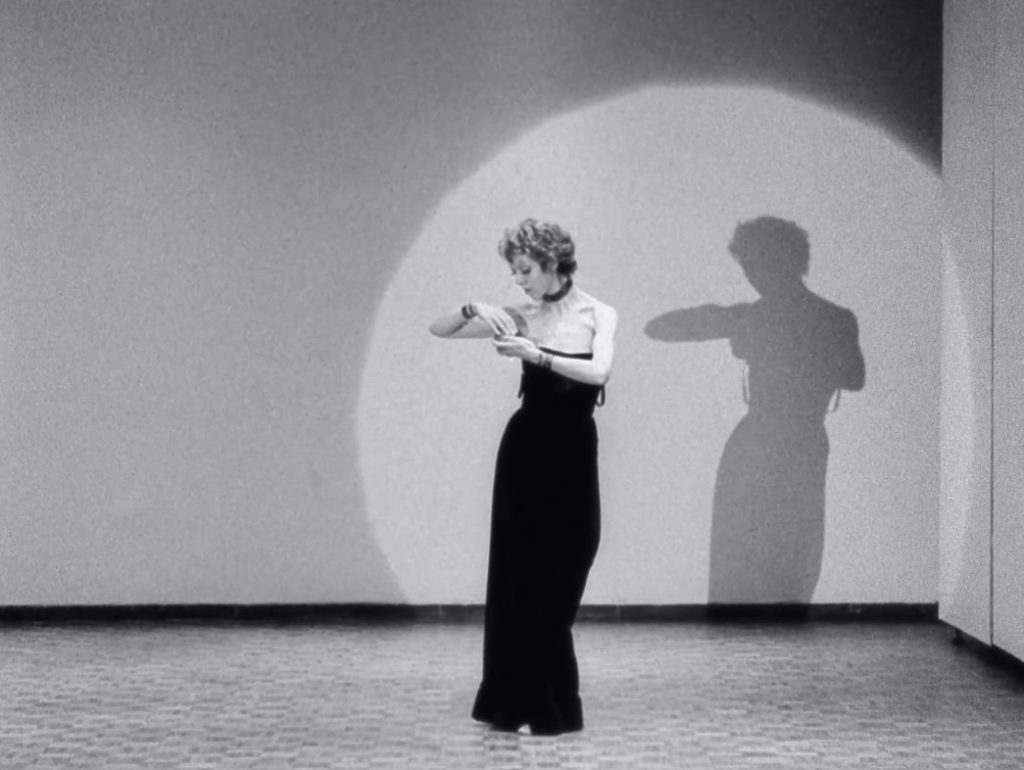West Philadelphia’s Nightletter has the answer.
We can talk all you want about the proliferation of streaming video solutions such as Netflix, Hulu, Amazon, and Pop, along with major network streams (CBS, NBC, Disney/ABC), and how they seek to offer deep dives into the in-home viewing experience and its cinematic rarities. Free film apps such as Pluto TV and TUBI TV are similarly disposed. Yet, none of these services – not even the TCM-related Criterion Collection channel – covers true independent, experimental, documentary, off party political film, and foreign cinema in the fashion that arthouse movie spaces have in the past.
Maybe it is a corny reality, but – like seeing a mega-action adventure or diabolical thriller on a huge screen with a screaming crowd of hundreds – there is still nothing like seeing an intimate film with an intimate audience. Every time a space opens – the old days of 4th and South’s TLA, the most recent forays into film from University City’s International House Philadelphia and its Lightbox Center – it disappears or, in the case of the impending sale of I-House, becomes yet another residential-retail-restaurant complex.
Max Bienstock, formerly of Metrograph in New York City and the Lightbox Film Center in Philadelphia knows well the virtue of seeing small film live, how the art house cinema landscape changes, and how it could come alive.
“New York has an incredible cinema culture, but, after falling in love with Philadelphia, I had to leave it and move here,” said Bienstock. “Philadelphia has a rich history of film exhibition and political and experimental film, but lately, there hasn’t been as much small independent screenings of experimental and new work. So I felt the need to open up a space to present that kind of work which I have felt there is a big desire for but that very few people are screening.”
Nightletter, located in West Philadelphia is that space, a screening series and venue for moving image art with its screenings held at Window Room at 5213 Grays Avenue (as a side note, Nightletter acknowledges that it occupies the traditional lands of the Lenape people). On a bi-weekly basis, Nightletter’s micro-cinema style screening series focus on independent, foreign, experimental, and political films.

“There is a lot of work that falls through the cracks because the filmmakers and independent distributors. don’t have the money and the marketing muscle to be profitable enough breakthrough in Philadelphia,” noted Bienstock. “Philly deserves to see these types of films too.”
So, Nightletter will screen new international and American films that wouldn’t otherwise be distributed in Philadelphia because of profit motives. They will also screen experimental films from some of the most important film artists who, in Bienstock’s words, “have even less of a chance to screen in a for-profit setting. And in keeping with our political aims, we will screen political films in coordination with local organizations to connect film art to the concerns of the local community.”

To that end, and for its first screening on Wednesday, July 10, Nightletter presents four films in one Shock of the Old, Shock of the New evening. Bookended by “two considerations of Asia, past and present,” the night starts with Leslie Thornton’s “Adynata,” and its look at Western perceptions of women and the East. “Incorporating such disparate elements as a 19th-century portrait photograph of an elite Chinese family, 1950s found footage, Truffaut, and Bow Wow Wow,” and closes with director Tsai Ming-liang’s “Walker,” and its look at Hong Kong’s spiritual/ritual modernity versus its past. In-between those two films, Cheryl Dunye’s “Vanilla Sex” looks into the racial differences between the black and white lesbian experience, while Ken Jacobs’ “Capitalism: Child Labor” takes a 19th Century stereographic photograph of children laboring and “transforms it using a strobe-like effect to create a moving 3D image.”

As for the name of Bienstock’s screening enterprise, the name ‘Nightletter’ reflects his and his screening series co-organizers’ political purpose. “Nightletters are underground political writings that have been used throughout the world to challenge the authority of oppressive forces,” he said. “We think that movies and thinking deeply about them can help us to see the world in a different and challenging way to form a community to make change together in solidarity.”
For additional films and times, www.nightletter.org.
About Post Author
Discover more from dosage MAGAZINE
Subscribe to get the latest posts sent to your email.


Independent cinema is moving out of the art house and into every house. The collapse of this viewing window and the bidding-war armistice has been mitigated by prefab dealmaking. Technocratic distribution companies like Netflix and Amazon have upended the state of independently produced movies. Film festivals that screen these movies were once the bastion for work created beyond the perception of Hollywood’s studio structures — films that were either unable or unwilling to penetrate the cast iron gates that lead to the moviemaking seats of power. The festivals were a home for insurgents, temples that hoisted Tarantino, Michael Moore, Sofia Coppola, Kevin Smith, Allison Anders, Robert Rodriguez, Todd Solondz, Todd Haynes, Ava DuVernay, Paul Thomas Anderson, Wes Anderson, Richard Linklater, and dozens more into the frame. Today, a movie that has been bought, paid for, and strategized against a global calendar by a massive public company is dissonant with the spirit of independent movies.
Independent cinema is moving out of the art house and into every house. The collapse of this viewing window and the bidding-war armistice has been mitigated by prefab dealmaking. Technocratic distribution companies like Netflix and Amazon have upended the state of independently produced movies. Film festivals that screen these movies were once the bastion for work created beyond the perception of Hollywood’s studio structures — films that were either unable or unwilling to penetrate the cast iron gates that lead to the moviemaking seats of power. The festivals were a home for insurgents, temples that hoisted Tarantino, Michael Moore, Sofia Coppola, Kevin Smith, Allison Anders, Robert Rodriguez, Todd Solondz, Todd Haynes, Ava DuVernay, Paul Thomas Anderson, Wes Anderson, Richard Linklater, and dozens more into the frame. Today, a movie that has been bought, paid for, and strategized against a global calendar by a massive public company is dissonant with the spirit of independent movies.